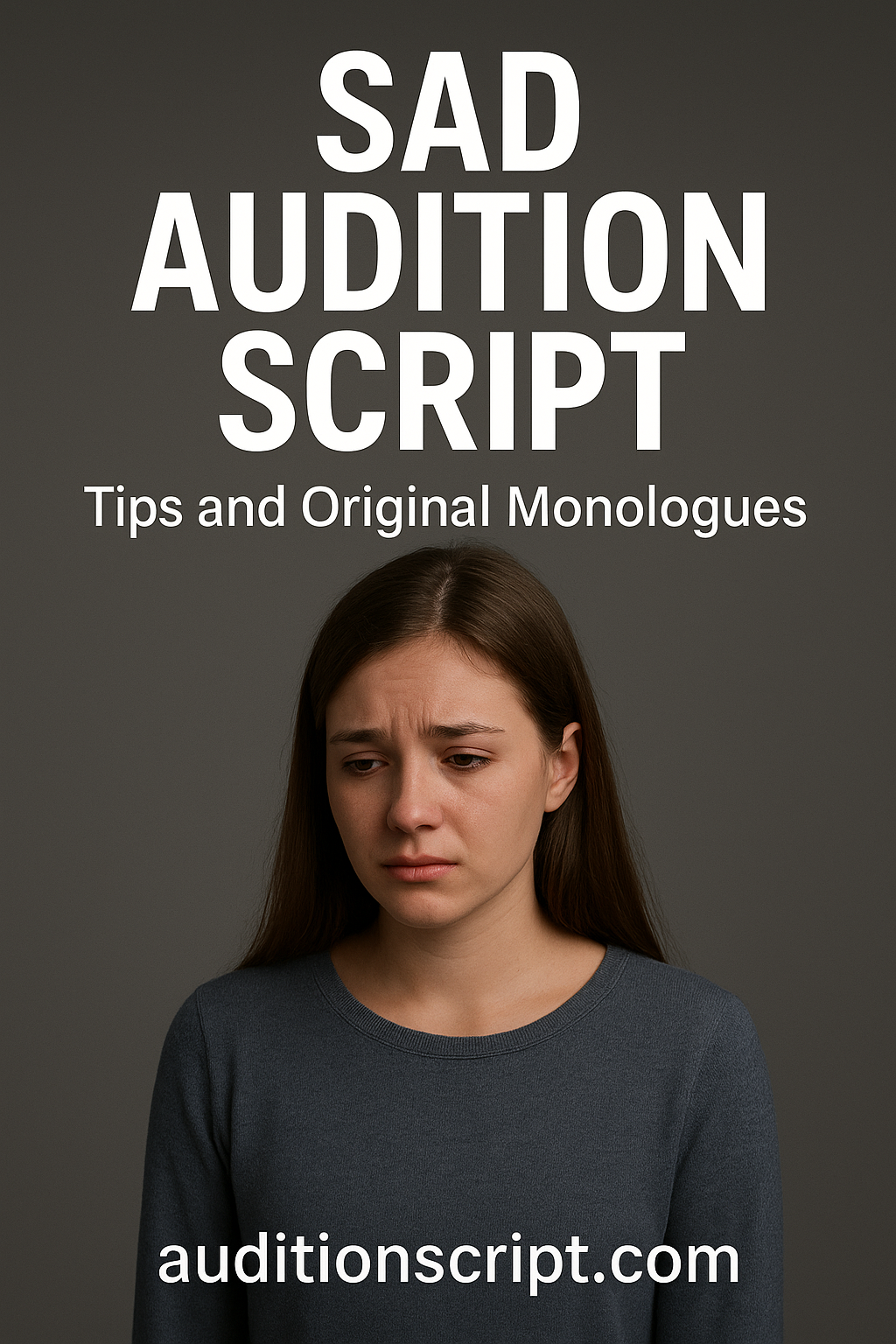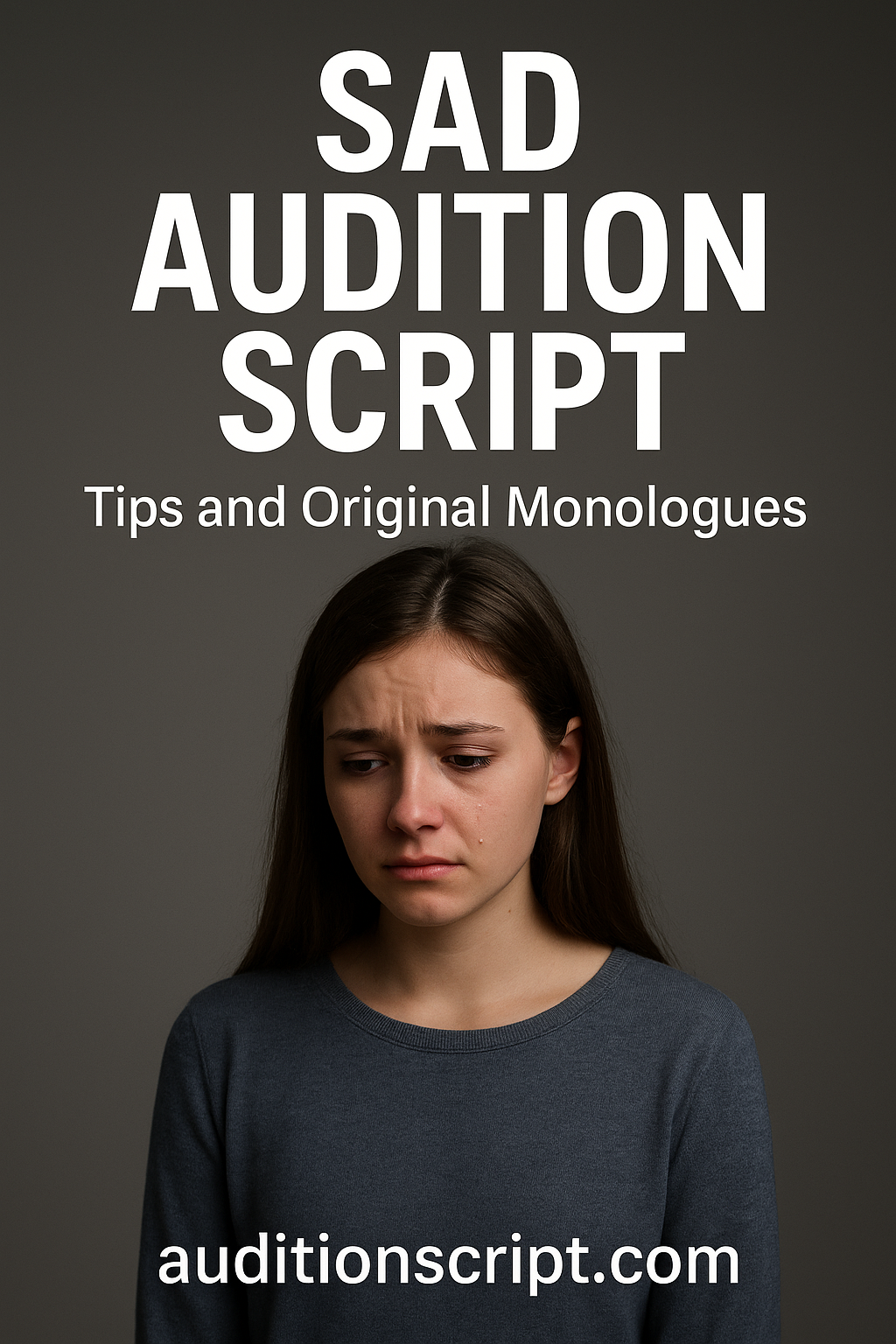Sad Audition Script: How to Perform with Emotion and Depth
When auditioning, one of the most powerful tools an actor can bring into the room is vulnerability. A sad audition script is not just about crying on cue it’s about truthfully connecting to the emotions of loss, disappointment, or longing, and letting the audience feel it with you. Whether you’re a middle school student auditioning for a play, a teen trying out for a streaming series, or even an adult aiming for a more serious role, mastering sadness is essential.
In this article, we’ll break down what makes a sad audition effective, how to prepare for it, and provide original sample monologues and dialogues (not copied from copyrighted works) you can practice with today.

Why Choose a Sad Audition Script?
- Emotional Range – Casting directors want to see how far you can stretch your emotions. Sadness tests honesty, control, and vulnerability.
- Memorability – A moving performance often sticks in their minds more than a comedic one.
- Character Depth – Sad scenes usually reveal who a character truly is under pressure, giving you space to shine.
Tips for Performing a Sad Audition
- Find the truth: Think of a time when you felt a similar emotion, and let that memory color your performance.
- Less is more: Sadness doesn’t always mean loud crying — sometimes the quietest delivery is the most heartbreaking.
- Control the pacing: Don’t rush; pauses, hesitations, and silences can speak louder than words.
- Stay grounded: Even when emotional, your voice must remain clear, and your body controlled.
Original Sad Audition Monologues
Here are original pieces you can use or adapt for auditions.
1. Elementary / Middle School Monologue (30–40 seconds)
(Character: A child who has just lost their best friend because they moved away.)
“You said you’d always be here. Remember? We built forts, we made promises, and you said forever. But forever ended today when that moving truck drove away. I waved so hard my arm hurt, but you didn’t see me. Maybe you were crying too. I wanted to scream, to make the world stop, but it didn’t. And now… it’s just me. Just me and the empty swing in the yard.”
2. Teen Monologue (45–60 seconds)
(Character: A teenager who feels invisible at home.)
“I don’t think they even notice me anymore. Mom’s busy. Dad’s gone before I wake up. I sit at dinner, and no one asks me about my day. Sometimes I want to stand on the table and yell just to see if they’d look at me. But I don’t. I just stay quiet. Because maybe they don’t really want to hear me. And maybe… maybe I don’t belong here the way I thought I did.”
Original Sad Dialogue for Pair Work
Scene: Two siblings after their dog passes away.
A: (whispering) “I thought he’d get better. I really did. I even prayed every night.”
B: (holding back tears) “Me too. But sometimes… love isn’t enough to fix things.”
A: “I don’t want to forget him.”
B: “We won’t. He’s part of us now. Every time we laugh at something silly, or race each other down the block, he’s there. Just… not the way we wanted.”
Final Thoughts
A sad audition script is about honesty. Don’t force tears or overplay the emotion instead, find the humanity in the moment. Casting teams aren’t looking for “the biggest crier” they’re looking for truthful storytellers.
With these examples and tips, you can walk into your next audition prepared to move your audience with authenticity.
✨ Pro Tip: Practice in front of a mirror or record yourself. Watch if your emotions feel real or staged. Adjust until it feels natural.
Blog (like the Peter Pan Jr. ones, with www.auditionscript.com

